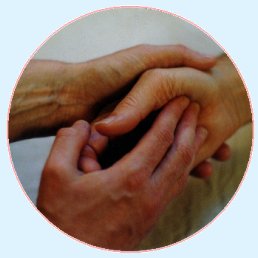Integrating Aroma
Cautions and Considerations
By Mary Kathleen Rose
Originally published in Massage & Bodywork magazine, April/May 2004.
Copyright 2003. Associated Bodywork and Massage Professionals. All rights reserved.
In the past few years there has been a seeming explosion of interest in aromatherapy. From scented candles, incense, air fresheners, and potpourri to organic essential oils and massage and skin care products,  the consumer is presented with a vast array of aromas to tease the sense of smell. Some of these products are marketed as ways to improve your home and work environment. Others are assigned special significance for healing or as ways to enhance the quality of your physical or emotional health.
the consumer is presented with a vast array of aromas to tease the sense of smell. Some of these products are marketed as ways to improve your home and work environment. Others are assigned special significance for healing or as ways to enhance the quality of your physical or emotional health.
With this popularity, there come concerns about the safe application of the chemicals used, whether for aesthetic or medicinal purposes. The truth is, very few of these highly marketed "aromatherapy" products are real. Many of the elements used in popular scented products are synthetic chemicals with known detrimental effects, particularly for sensitive individuals. Even where there are not immediate observable problems, the prolonged use and exposure to these synthetic and toxic chemicals may contribute to multiple sensitivities and chronic illnesses over time, including fibromyalgia, migraine headaches, asthma, chronic fatigue syndrome, and cancer.
But what about pure essential oils, the aromatic oils distilled from a variety of plant materials, including flowers, leaves, needles, peels of fruit, wood, and roots? Many people think because they are produced from natural materials they are always safe and beneficial to use. And while pure essential oils are preferred in body care and other scented products, these oils are highly concentrated substances and should be used with caution. As more people turn to the use of essential oils on a regular basis, let's examine some of those discretionary measures.
Ecological: A large amount of plant material is used to produce essential oils. Most plants contain 1 percent to 5 percent essential oil. For a plant with 1 percent essential oil, it takes 100 ounces to make 1 ounce of essential oil. For plants grown commercially, such as lavender, that is not a problem. But for wild plants, that can be a serious concern. Another issue of concern is the use of herbicides and pesticides. Most essential oils are not organically grown.
Allergies, sensitivities, and irritation: Many people are sensitive to the effects of scents and essential oils, whether airborne or applied to the skin. The user of essential oils must always be alert to the possibility of allergic reactions. Sensitivities may develop over time and can be especially hard to identify if a variety of essential oils are used in combination. Allergies may manifest as sneezing, itchy eyes, headaches, skin irritation or rashes, or severe respiratory distress.
Antibiotic resistance: Many essential oils have antiseptic and antibiotic properties. While these are often the qualities sought after in using the oil, it should be noted that overuse of antibiotics, even topically on the skin, can contribute to antibiotic resistance. This is the capacity of bacteria to inactivate or exclude antibiotics or otherwise block their inhibitory or killing effects. Resistant bacteria evolve as a result of using antibiotics.
Masking rancidity: Essential oils are often used by diluting them in carrier oils. Because the essential oils are so concentrated this is a way of controlling the dose used, as well as providing a scent to the carrier oil which then may be used on the skin for body care or massage. But the strength of the scent may mask rancidity in the carrier oil. Commonly used massage oils, like almond oil, apricot kernel oil, avocado oil, or wheat germ oil, are not stable, so the essential oil simply covers the smell of rancid oil. For use in body care, olive oil is the most stable, along with coconut oil. Coconut oil, which is solid at cool temperatures, can be melted by placing its container in a pan of warm water for a few minutes. Organic coconut oil is inexpensive and works well as a massage lotion. It has a wonderful aroma of its own, without the addition of any other scent.
Imposition of scent: Health conscious people are increasingly asserting their right to clean air. This is evidenced by the move toward bans on cigarette smoking in public places. But what about strong scents used in personal care and beauty products -- regardless of whether they are natural or synthetic? We share the air with other people and need to be considerate of that. And of course there is the reality of actual allergic reactions to a substance worn by another person. One woman tearfully complained to her husband after he came home from receiving an aromatherapy massage. She was allergic to the essential oil that had been used in his massage. Strong scents can also just be unpleasant or annoying to other people. For example, a strongly scented substance like patchouli can be a joy to one person, abhorrent to another.
Desensitization: The frequent use of essential oils can result in the desensitization of smell. This human sense is designed to discern many different scents. One should be able to tell if a food is fresh or rancid, desirable or undesirable. One should be able to distinguish one substance from another. The well-developed sense of smell can help us to find particular plants in the wild or in the garden. Smell is one of the methods by which a mother and baby bond, or that people are attracted to or repelled from one another. The sense of smell alerts us to danger, as in the smell of a gas leak or a fire, or other toxins in the environment.
Overuse of essential oils, or other strongly scented substances, diminishes our ability to use our sense of smell to its full potential. Previously, I gave the example of a massage oil's rancidity being masked by the use of essential oils. Susun S. Weed, well-known herbalist and health educator, calls aromatherapy "the white sugar of herbalism." I think the analogy is apt. When individuals eat only refined sugar, they lose their ability to taste the sweetness in whole food (i.e., the sweetness of a carrot or whole grain bread). In a similar way, with overuse of essential oils, the individual loses the ability to discern the subtleties or scent in whole plants.
 Mary Kathleen Rose, C.M.T., has more than 25 years of active involvement in the holistic health field, focusing on nutrition, herbalism, massage, and expressive arts. She has a bachelor's degree in integrative healing and is certified by Susun Weed in the Spirit and Practice of the Wise Woman Tradition. She is the author of The Gift of Touch: Comfort Touch Massage for the Elderly and The Ill and Bereavement: Dealing with Grief and Loss. For more information, visit www.comforttouch.com.
Mary Kathleen Rose, C.M.T., has more than 25 years of active involvement in the holistic health field, focusing on nutrition, herbalism, massage, and expressive arts. She has a bachelor's degree in integrative healing and is certified by Susun Weed in the Spirit and Practice of the Wise Woman Tradition. She is the author of The Gift of Touch: Comfort Touch Massage for the Elderly and The Ill and Bereavement: Dealing with Grief and Loss. For more information, visit www.comforttouch.com.

COMFORT TOUCH DVD
A Nurturing Form of Acupressure Massage
 by Mary Kathleen Rose
by Mary Kathleen Rose
This beautifully produced video introduces the viewer to the principles and techniques of Comfort Touch, a nurturing form of acupressure massage designed to be safe and appropriate for the elderly and the ill. Drawing on her many years of experience practicing and teaching this work in home-care and medical settings, Mary Kathleen Rose shares the essential elements of Comfort Touch with demonstrations of its applications in the seated, supine and side-lying positions.
Includes 40-page Video Guide, complete with Principles and Techniques of Comfort Touch, Benefits of Comfort Touch, Precautions in the Use of Touch and Self-Care Exercises for the Caregiver.
Price: $29.00
Order COMFORT TOUCH DVD in our Bookshop






